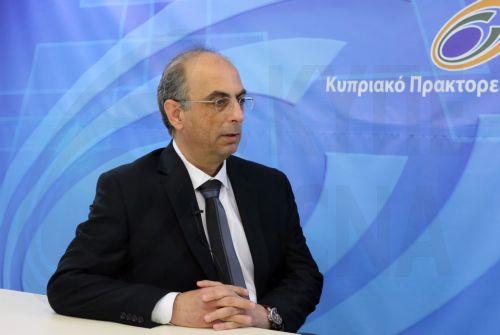Labour Minister Yiannis Panayiotou and Finance Minister Makis Keravnos are meeting the leadership of Cyprus’ main trade unions — Sek, Peo, Deok and Pasydy — in Nicosia on Thursday afternoon to discuss the ongoing saga of the cost-of-living-allowance (CoLA).
The talks follow Wednesday’s meeting between the two ministers and the heads of employers’ federations OEV and Keve, which lasted about an hour and a half. After that meeting, both organisations said that there was still a long way to go before reaching a comprehensive agreement. They confirmed that a range of issues had been discussed to identify possible areas of convergence that could form the basis for a deal.
The Employers and Industrialists Federation (OEV) general director Michalis Antoniou told the Cyprus News Agency that the organisation is awaiting the decisions of the chambers of commerce and industry (Keve), expected later in the day, as well as the outcome of the ministers’ afternoon meeting with the trade unions before announcing the positions agreed at Thursday evening’s session of the employers’ organisations.
Asked to confirm reports that OEV had decided to reject the government’s negotiation framework during its meeting the previous evening, Antoniou said, “I cannot deny the information, that would be misleading,” but declined to elaborate further.
“We will wait to see what the chambers decide. I believe we should first see how the ministers’ talks with the unions unfold, and depending on developments, we will act accordingly. We have a position, objectives, a plan, everything needed for this process,” Antoniou said.
However, he stressed that “coordination, proper timing and institutional management are crucial. It is important to respect institutional procedures, as the industrial relations system is the only mechanism that allows us to overcome deadlocks.”
He added that “ideally, we will move in a coordinated and joint manner, as we started, together with Keve,” while explaining that OEV would nonetheless evaluate its own options.
“OEV has its own autonomy, independence and bodies. I believe we will continue together and hopefully reach a joint conclusion,” he said.
Awaiting further developments, Antoniou did not confirm whether a joint meeting of all sides could take place on Friday, saying that “everything remains fluid.”
“The course of developments is not predetermined,” he said.
Asked if the process was nearing completion, he said that “the expression of hope that we will conclude is just that, an expression of hope and nothing more. My hopes are not yet confirmed.”
He added that a process that remains open could still end in deadlock or be extended to allow each side’s red lines to be satisfied so that an agreement can be reached where both parties feel they achieved mutual results, without one side feeling defeated and the other victorious. Antoniou said that at some point each side would have to explain to the public what actions it took.
“We will likely need a press conference to present what we proposed to resolve the issue, why we believed it was the right course, and let everyone be judged accordingly,” he said.
Thursday’s meeting comes amid delays in communication between the government and the social partners. Speaking to the Cyprus News Agency on Monday, Deok president Stelios Christodoulou said that the government had not yet sent the unions a revised document with clarifications and explanations requested the previous week.
Last week, the government circulated a confidential negotiation framework to both employer and trade union organisations. Both sides said the document contained ambiguities and sought further clarification. Christodoulou said that the unions want the CoLA system to be extended to cover more workers and to ensure that companies do not treat labour costs as a flexible expense.
“We want the system to apply wherever there are collective agreements, for all employees, not only for union members,” he said.
He added that unions hope to reach a successful conclusion soon so that attention can shift to other labour matters, including pension reform and the national minimum wage.
“We have spent more than six months discussing the issue of CoLA,” he said.
When asked whether he believed the two sides were close to an agreement, Christodoulou replied, “We shall see. As close as you may seem, you can still be just as far.”
He said the outcome would depend on whether the ministers’ proposal is acceptable to both the employers’ associations and the unions participating in the joint trade union front. “That would be a welcome development,” he added.
He also reminded that unions had already submitted a letter to the ministers two weeks ago outlining their positions and the extent of their possible concessions. “The ministers are aware of our limits,” he said.
Employers’ representatives have not ruled out the possibility of a joint meeting involving all sides, potentially on Friday, in a bid to reach a final compromise on the CoLA issue.
The CoLA, a mechanism adjusting wages in line with inflation, has been the subject of prolonged negotiations between government, employers, and unions since early this year. All sides have expressed willingness to continue dialogue to reach a balanced and sustainable agreement.






Click here to change your cookie preferences